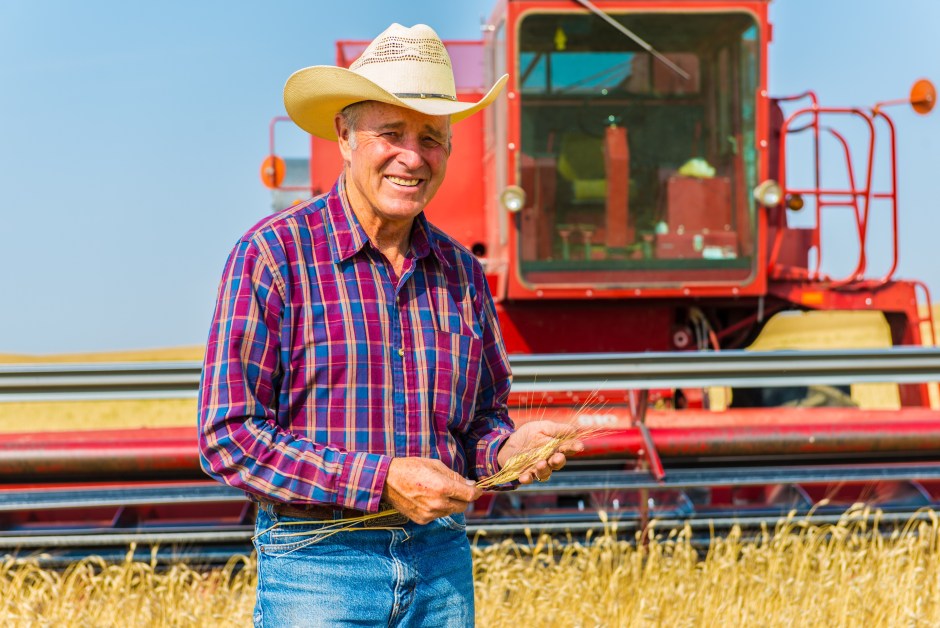To meet the current supply shortages in organic food production, more organic farmers are needed with long-term contracts to minimize farmers’ risk, along with research to highlight the nutrient density of organic foods.
These were some of the key takeaways from a discussion among noted organic industry leaders recently at Natural Products Expo East in September.
The educational session, “The Future of Organic: Relevance and Scalability,” featured Laura Batcha, executive director of the Organic Trade Association; Jeff Moyer, executive director of the Rodale Institute; Bob Quinn, president of Kamut International; and Markus Reetz, executive director of NuernbergMesse/BIOFACH. David Gould, global head of sustainability programs at FoodChain ID, moderated the session.
More organic farmers needed
Moyer emphasized that more organic farmers are needed. “We need to create on-ramps for people to get into organic farming,” he said.
It is challenging for young people to get into organic farming because they may have to take on significant debt to buy land and equipment while not making a big enough salary to pay it down.
Moyer said organic farmers need long-term contracts to provide assurance they will have a market for their crops.
“It’s challenging for farmers to go to a bank and get a loan for organic farming. The banker will ask: ‘what is your market?’ ”
Batcha also cited the need for long-term contracts for transitioning farmers.
“Farmers have to learn a new way of farming and to find markets for all crops in their rotations. They can’t do it alone. They need long-term contracts to mitigate risk.”
Reetz discussed how governments can aid organic farming initiatives, citing the example of the Indian state of Sikkim, which has committed to all-organic agriculture production.
“Their success story can give motivation and give younger people assurance they can earn a living in organic farming,” he said.
Moyer said Pennsylvania, where Rodale is based, passed its own farm bill the past year, a first for any U.S. state. The bill contained six key provisions including one to increase organic production in the state.
“The farm bill is an exciting step in bringing together what consumers want and what farmers grow,” Moyer said.
Fraud or weakened organic standards?
Reetz gave an international perspective on the organic market. “The market is not meeting demand, and the market is getting products that have weakened organic standards.”
Reetz said that “bad examples” of suppliers adopting weakened organic standards will spread around the world.
“Whatever is happening in the EU and U.S. are adopted by other countries, including weakened organic practices.”
Batcha disagreed, saying that organic fraud is the bigger problem in the international organic market, not weakened standards.
Quinn also said organic fraud is a big problem, citing a certified organic farm he visited in Kazakhstan that was spraying lentils with an herbicide, not allowed in organic production, to desiccate or dry them down.
“There is a lot of misunderstanding, ignorance, and fraud,” he said.
Quinn said that a technology to detect organic fraud has recently been developed.
“An inexpensive way to detect fraud would be a big deterrent,” he said.
According to Batcha, organic supply shortages don’t apply to all organic agricultural products.
“We have an oversupply of organic milk. People are mostly talking about organic grains (when discussing supply shortages).”
Batcha acknowledged that organic is a global market, and that the U.S. will rely on international suppliers.
“The U.S. won’t be a primary producer of spices and coffee,” she said.
Quinn said that 75% of his Kamut ancient wheat production goes to Europe.
“When we started growing Kamut, we never imagined shipping it overseas but Europe is our most important market.”
Organic research: increasing yields or better nutrition?
Quinn talked about the need for organic research to help advance organic agriculture.
“We really need research but USDA isn’t putting much into organic research. The world is going organic, but we have to answer a lot of questions.”
As an example of USDA’s lack of forward vision in research, Quinn said the agency focused research on stagecoaches in the late 1880s when automobiles were starting to come to market.
Moyer said the organic supply chain has some responsibility to fund organic research.
“We can’t rely on the government or we will get stagecoaches. We have to support the organic sector.”
Batcha said research should focus on increasing yields of organic crops. “Increasing yield is a way to reduce the pressure between the price consumers pay for organic foods and the amount paid to organic farmers.”
Quinn disagreed, saying research should focus on nutrition. “Focus on nutrition and health, and solving problems of disease. This is the connection we need to make. Focusing on yield will play to the downward spiral of industrial agriculture.”
Gould said that the main reason consumers buy organic foods is because they aren’t produced using synthetic fertilizers and pesticides.
He also brought up the concept of nutrient density. “What is the nutrient density of organic versus conventional?”
Moyer said younger consumers are more aware of nutrient density.
He also said Rodale’s goal is to make people healthy. “It’s about healthy soil, healthy food, and healthy people.”
Quinn predicted that organic food will increase from its current 6% of the food industry to 100% in the next 40 years.
“For the last 70 years we’ve had chemical agriculture, and now the wheels are coming off that bus. The next generation can finish the job, and your great grandchildren will thank you for ending the chemical agriculture experiment.”









